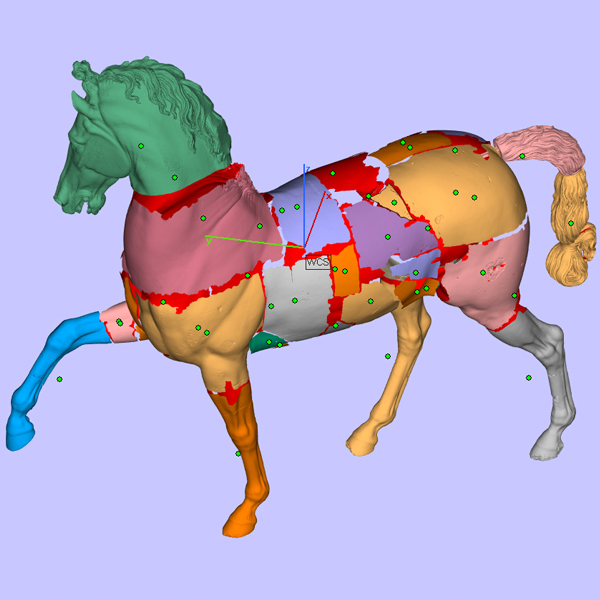
St. Petersburg, St. Petersburg State University. Ms. O, no. 1434. Al-Qānūn al-wādiḥ fī muʿālajāt al-jawāriḥ (The Clear Canon for Medical Treatments of Birds of Prey). Copied in 1510 CE
The Factum Foundation team who works on this project is based in the ARCHiVe space, in Venice, and in the Madrid headquarters. They are working closely with Dr Anna Akasoy (professor of Islamic intellectual history at CUNY – a specialist in medieval Arabic and an expert on falconry) and Anne-Lise Tropato (NYU, AbuDhabi).
MEFA is the digital home and a vital repository for the heritage of Arabic falconry literature, with the goal to safeguard and explore the deep roots of the heritage of Arab falconry. By assembling digital records and researching the manuscripts in their historical contexts, it works to safeguard the intangible traditions, stories, and knowledge of falconry.
MEFA is an ongoing research and archival project. Digital manuscripts will be added progressively and, by 2023, MEFA aims to include digital records of all the manuscripts identified thus far. To date, MEFA has identified approximately 70 manuscripts in Arabic alone, containing texts on falconry written between the eighth and sixteenth centuries across the Middle East. The focus of the bibliography is on texts concerned with the training and care of birds of prey. These texts range from falconry literature to technical treatises. Some of the famous passages, such as the book of Adham and al-Ghiṭrīf (one of the earliest Arabic texts on falconry) were copied 20 times, while others are stored in a single copy. MEFA is collaborating with these libraries to digitise or obtain digital copies of these manuscripts, allowing them to be brought together into a single digital home for the heritage of Arabic falconry literature. The digital records of each manuscript are supported by both technical information for academics and engaging educational information for all falconry heritage enthusiasts.
Negotiations are currently being concluded to expand the Middle East Falconry Archive (MEFA) into a larger project dedicated to communicating the importance of falconry through literature, imagery, and artefacts – both historical and contemporary. As the project develops, Factum intends to disseminate and promote an interest in falconry and its preservation through designing and developing a series of exhibitions, seminars, and publications targeting a community of academic and general users.
Falconry manuscript discovered
As part of its mission to study and popularise the history of falconry, the Middle East Falconry Archive assembles digital copies of Arabic manuscripts which preserve handbooks written centuries ago. Some of these books have survived in several copies, and others appear to have been lost despite being reportedly influential in the field.
One such text was written for al-Mutawakkil, the Abbasid caliph who reigned from 847 to 861 in Iraq. This handbook about falconry and hunting circulated in the multi-lingual Mediterranean world of the 13th century. Kings Frederick II and Alfonso X of Castile both had translated versions of the Arabic text, and a Latin adaptation was also widely disseminated.
For several decades, scholars have looked for a complete copy of the Arabic version, which has now been identified inside the University of Lund Libraries in Sweden by historian Anna Akasoy (Graduate Center of the City University of New York). This near-complete copy was added to the Middle East Falconry Archive database and will help document and analyse the history of its transmission as one of the world’s most important falconry manuals.

Österländsk litteratur, Tornberg XXI © Lund University Library




